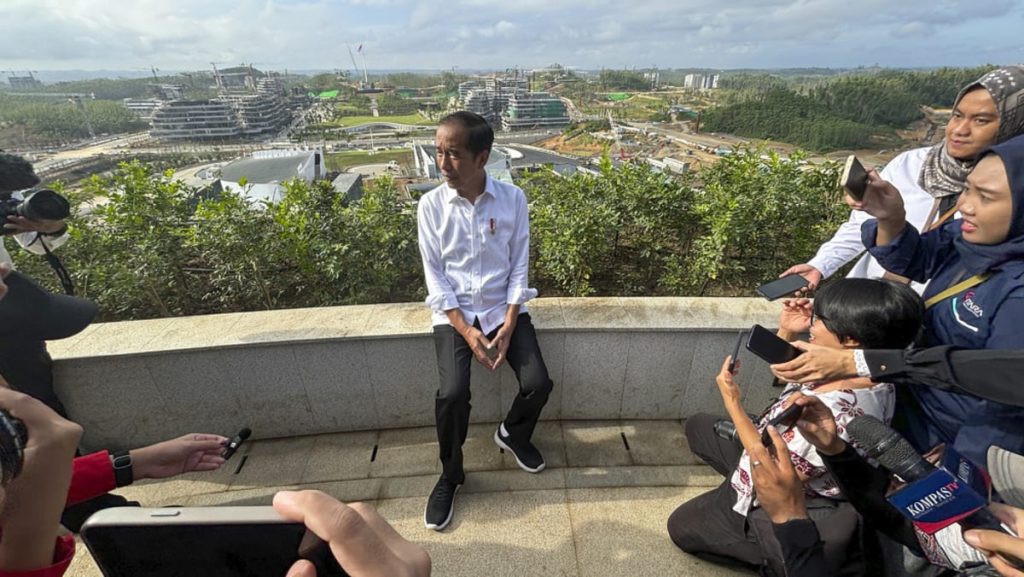President Joko Widodo, known as Jokowi, spent his first night in the proposed new capital of Indonesia, Nusantara, in the eagle-shaped palace known as the Garuda Palace. The president has been working diligently to complete as much of the new capital as possible before his term ends in October, despite facing various challenges such as construction delays, lack of foreign investment, managerial issues, and land disputes. Jokowi acknowledged that the ambitious project of building a new capital could take up to 10, 15, or even 20 years to complete.
The Garuda Palace, with its striking design that resembles an eagle with 4,650 blades as the wings, serves as the focal point of the new capital. Jokowi addressed reporters outside the palace, stressing the magnitude of the task at hand and emphasizing that it is a long-term project that requires significant time and effort. Despite facing difficulties in completing the infrastructure project, including the initial lack of essential amenities like water, electricity, and internet, Jokowi reassured that these issues have been resolved, allowing him to officially move into the palace and carry out his responsibilities.
The development of Nusantara as Indonesia’s new capital involves transforming a jungle area in Borneo, located approximately 1,200km away from Jakarta, the current capital. The estimated cost of the infrastructure project is around US$32 billion, indicating the scale and complexity of the endeavor. The geographical shift of the capital from Jakarta to Nusantara is aimed at addressing issues such as overpopulation, pollution, and sinking land in the current capital, while also promoting regional development and improving infrastructure across the country.
Jokowi’s decision to immerse himself in the new capital reflects his commitment to driving the project forward and demonstrating leadership in overcoming challenges. By residing in the Garuda Palace and overseeing the development first-hand, Jokowi intends to allay fears and uncertainties surrounding the future of Nusantara as the new capital. Despite acknowledging the enormity of the task and the lengthy timeline for completion, Jokowi remains focused on advancing the construction, attracting investment, and ensuring the success of the new capital.
As Indonesia prepares for a significant transformation with the establishment of Nusantara as the new capital, Jokowi’s involvement and dedication serve as a guiding force in navigating the complexities and obstacles that arise during the construction process. The government’s efforts to address infrastructure, connectivity, and sustainability in the new capital underscore the importance of careful planning and strategic decision-making in shaping the future of the country. Through his leadership and vision for Nusantara, Jokowi aims to create a modern, sustainable, and resilient capital that reflects Indonesia’s aspirations for progress and development.















